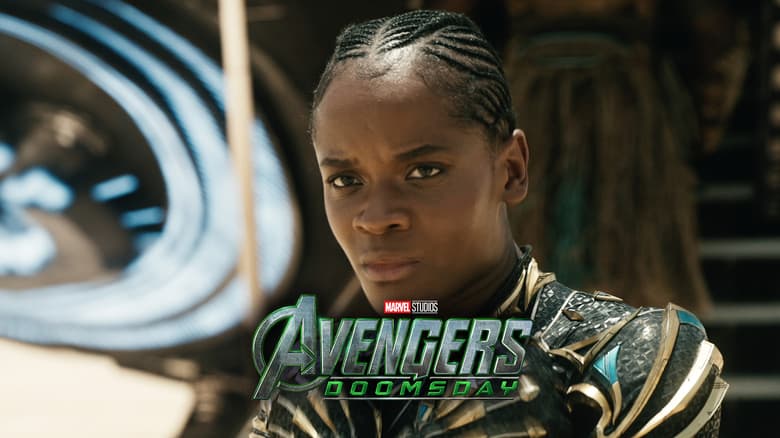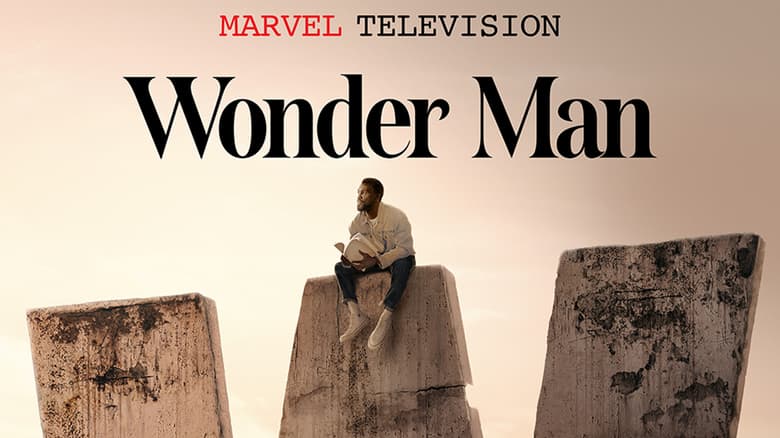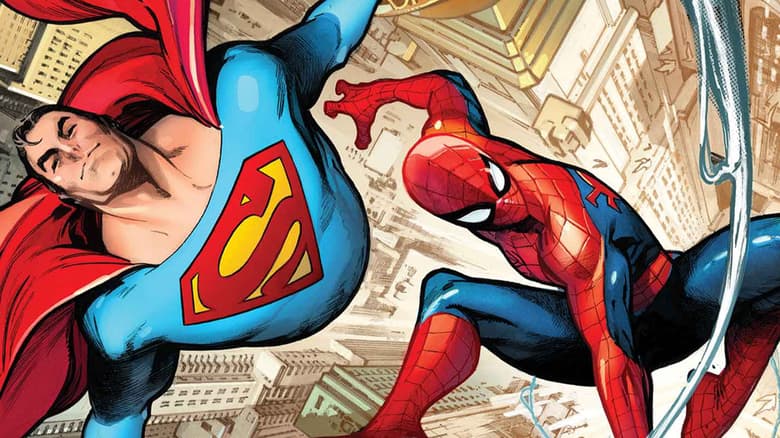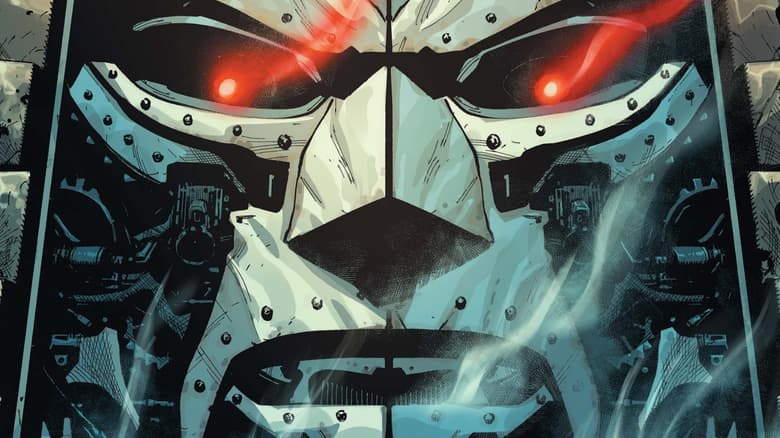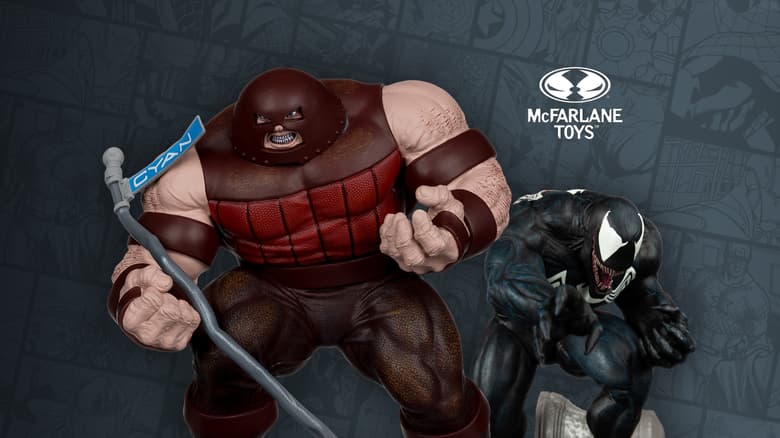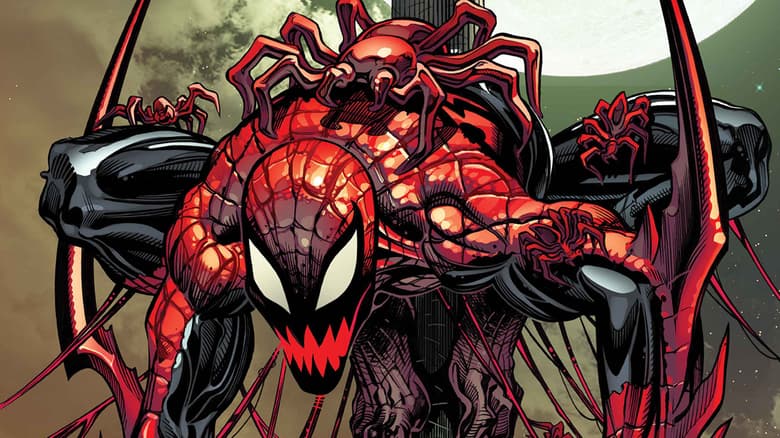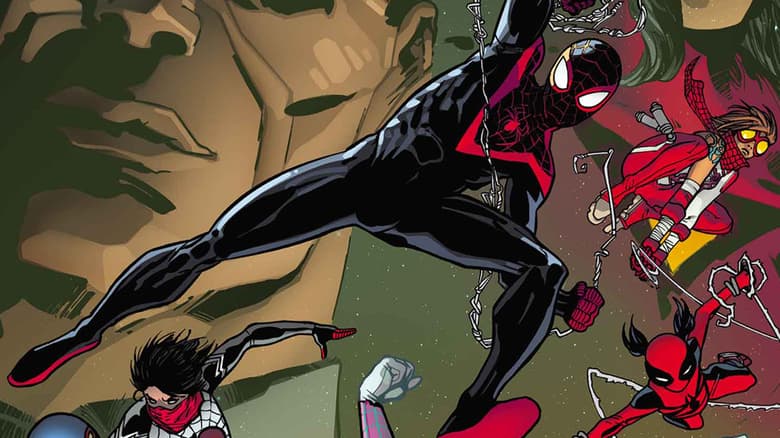Behind-the-Scenes with 'Amazing Spider-Man' Scribe Cody Ziglar
One of Marvel’s newest voices talks about his entry into the House of Ideas and first foray writing the wondrous Web-Slinger!
Like Ben Reilly settling into the role of the Marvel Universe’s flagship hero during the “Spider-Man Beyond” storyline currently unfolding in AMAZING SPIDER-MAN, Cody Ziglar represents a fresh voice in the world of the Wallcrawler. A veteran of TV writing on Rick and Morty as well as the upcoming Marvel Studios' She-Hulk, Ziglar recently penned a two-parter pitting Peter Parker’s erstwhile clone against Kraven the Hunter in ASM issues #79 and #80 before returning for #84 and this week's ish #85 featuring Doc Ock.
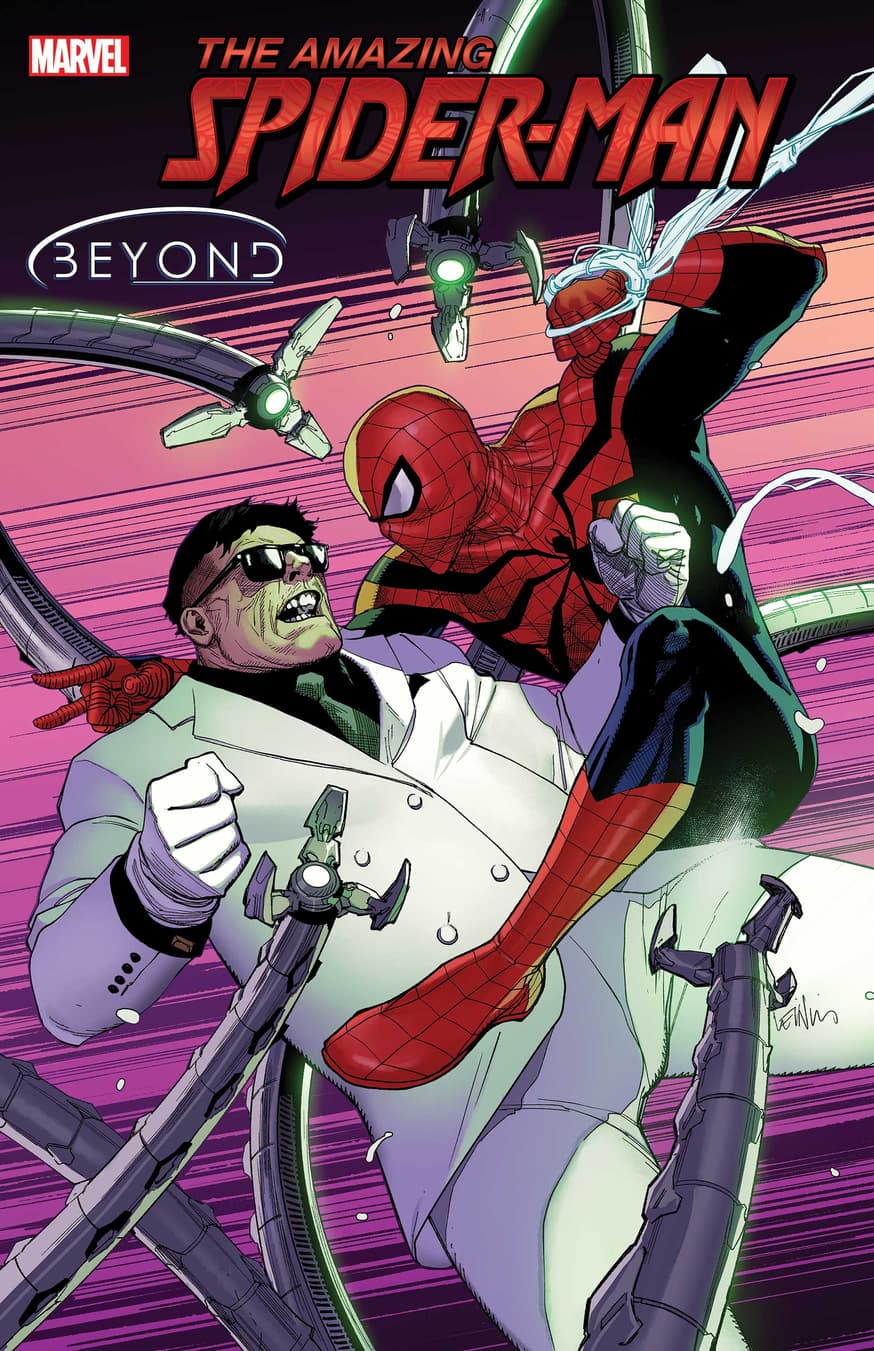
We caught up with Ziglar to learn more about his journey from comics-loving kid to a full-fledged professional making space for himself at the House of Ideas. In addition to his origin story, the writer shared with us insights into Ben Reilly’s adventures and what to expect coming up.
Before we get into you becoming a comic book professional and your work on AMAZING SPIDER-MAN, what’s your background as a fan?
Cody Ziglar: I gotta give it up to my dad. I’m actually at my dad’s house right now and am sitting in front of a closet filled with his comic book collection, which is what got me into it. When I was six or seven, he took me to HeroesCon in North Carolina where I saw this huge, muscled dude with kids running up to him asking for autographs. I asked who he was and it was Lou Ferrigno, who plays the Hulk, but I didn’t know what the Hulk was. My dad explained it to me and then bought me two issues of Spawn and a Jurassic Park tie-in comic—that’s how I got into comics. I fell out for a little while because we lived in the country and weren’t near a comic book shop, we had to drive like 45 minutes and my parents weren’t going to do that. I came back around when I was like 19 or 20, I was delivering Chinese food and the store right next to the restaurant was a comic book shop, so I’d get my tips and then go buy issues of WORLD WAR HULK.
The whole Ultimate Universe was really popping at that time. That was my first foray into Ultimate Peter Parker, the Ultimate Fantastic Four and the Ultimates. I thought Captain America was corny, then I read THE ULTIMATES and it was cool, it was like reading a widescreen movie. You could see the blueprint for the MCU DNA. It was all downhill from there. I was into it. I read every comic that Deadpool appeared in. I was in, full steam ahead, and I’ve been in ever since.
Was Ultimate Peter Parker your first experience with Spider-Man?
Yeah, I had played the video games and watched the cartoons as a kid, but I had never actually read any physical Spider-Man comics until Brian Michael Bendis and ULTIMATE SPIDER-MAN. The Ultimate line was how I got into Spider-Man and the Avengers and the X-Men. The whole idea of the Ultimate line was a universe where you as a reader didn’t need to worry about 60 or 70 years of backstory, which is pretty hard to jump into. There’s so much lore, and this was back before we had some of the resources that we do now. That was my first foray into Spider-Man.
I read the entire run [of ULTIMATE SPIDER-MAN], from Peter getting bit up to him dying and the torch getting passed to Miles Morales. Seeing a loop close like that in a comic book was something I was not used to. In the Ultimate Universe, generally if you died you were dead. I think Hank McCoy came back two or three times, but, ultimately, if you died, you were not coming back, that was it. When Peter Parker died, he wasn’t coming back, so that was a really cool experience, seeing that story come to a close and then a new window opening for Miles to come swinging through.
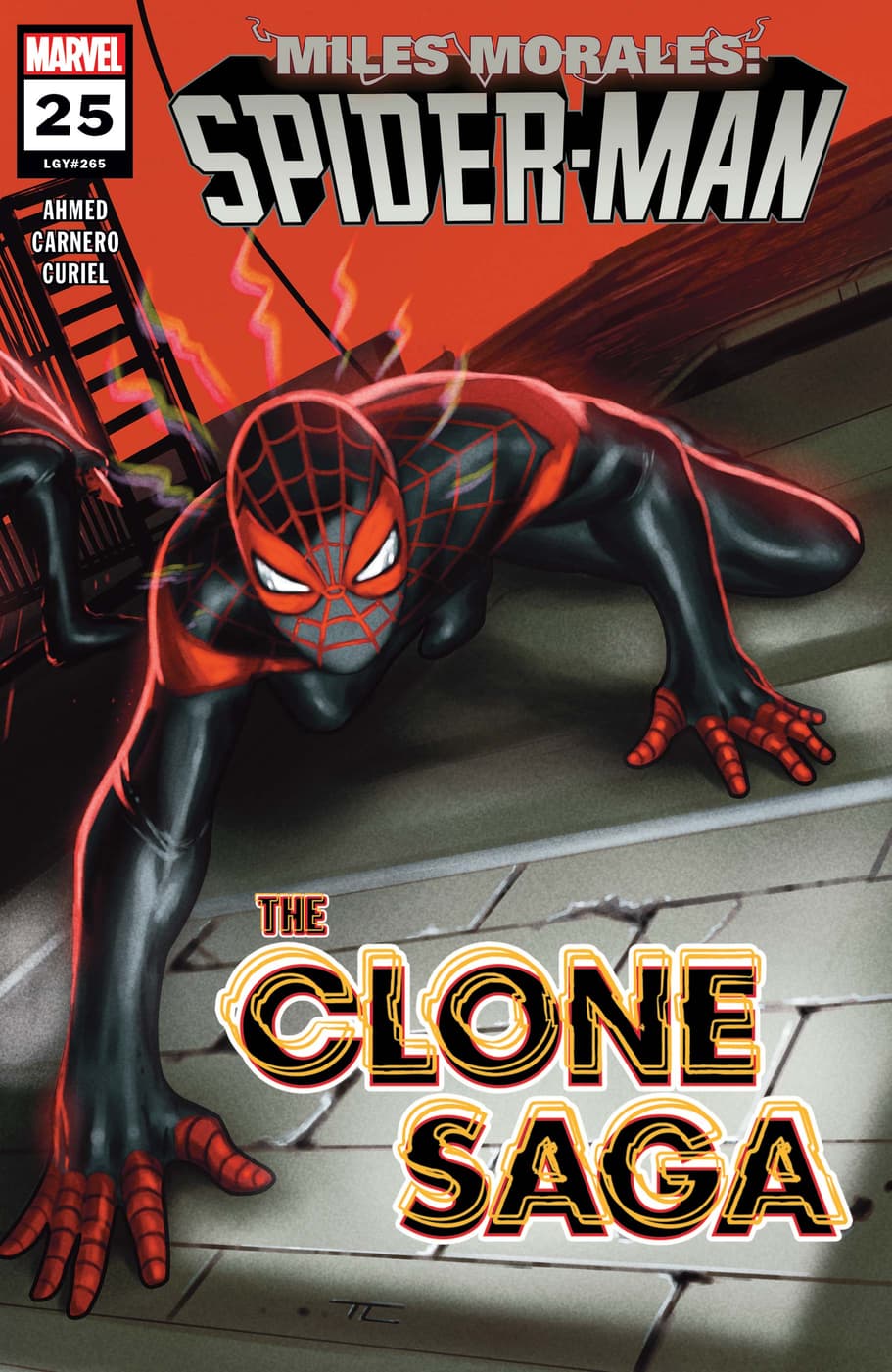
Switching gears a little bit, talk about your professional experience and how it led you back to comics.
I’ve done tons of random stuff, but TV writing was how I got to comics writing. I’ve produced comedy podcasts, I’ve shot stuff, I’ve been a production assistant, but getting Marvel Studio's She-Hulk on Disney+, which is being run by Jessica Gao—fantastic lady, wrote on Rick and Morty, just knows how to write funny genre stuff. Whenever she had to go put out fires, the room was run by Zeb Wells, and Zeb has been writing comics forever. I think Zeb and Jessica met on Robot Chicken, he’s an OG Robot Chicken guy. In the She-Hulk room, Zeb and I were very much the comic book guys, the MCU guys. When they needed a villain or a situation for Jen from the comics, we would yell for 15 minutes, then they’d tell us to take a breather and calm down while the adults figured out the dramatic stuff.
We were very much kindred spirits and after the room wrapped I let Zeb know I wanted to write comics. While we were in the room, Zeb was writing ANT-MAN and I’d be looking over his shoulder as this amazing splash page came in of giant dung beetles fighting, and I was like, “This is your job?!” When the room wrapped, Zeb introduced me to Nick Lowe, the Spider-Man editor, and I didn’t know Nick had edited the Ultimate line, so when he asked me what my favorite comics were and I said the Ultimate stuff, he said, “You’re going to fit in perfectly.”
From there I got my first comic story, which was a back-up in MILES MORALES: SPIDER-MAN #25. ULTIMATE SPIDER-MAN was the first Spider-Man I ever read, but really Miles was my Spider-Man. I distinctly remember driving to the comic book store 10 years ago because there was a black Spider-Man and I had to read that book. Writing a story with Miles was completely surreal. Nick enjoyed the 10-page story I wrote, then he gave me a one-shot and enjoyed that. Zeb had liked working with me on She-Hulk and was putting together a room for this arc on AMAZING SPIDER-MAN so that’s how I got into it. I was initially supposed to write four issues, but then other people got busy or couldn’t do it, so I got more and more stuff added to my plate, which was great. It was a mix of meeting the right people and being available. That’s how I’m currently where I’m at, and it’s been great. This has been my first year of having published comics come out, and I couldn’t have asked for a better introduction.
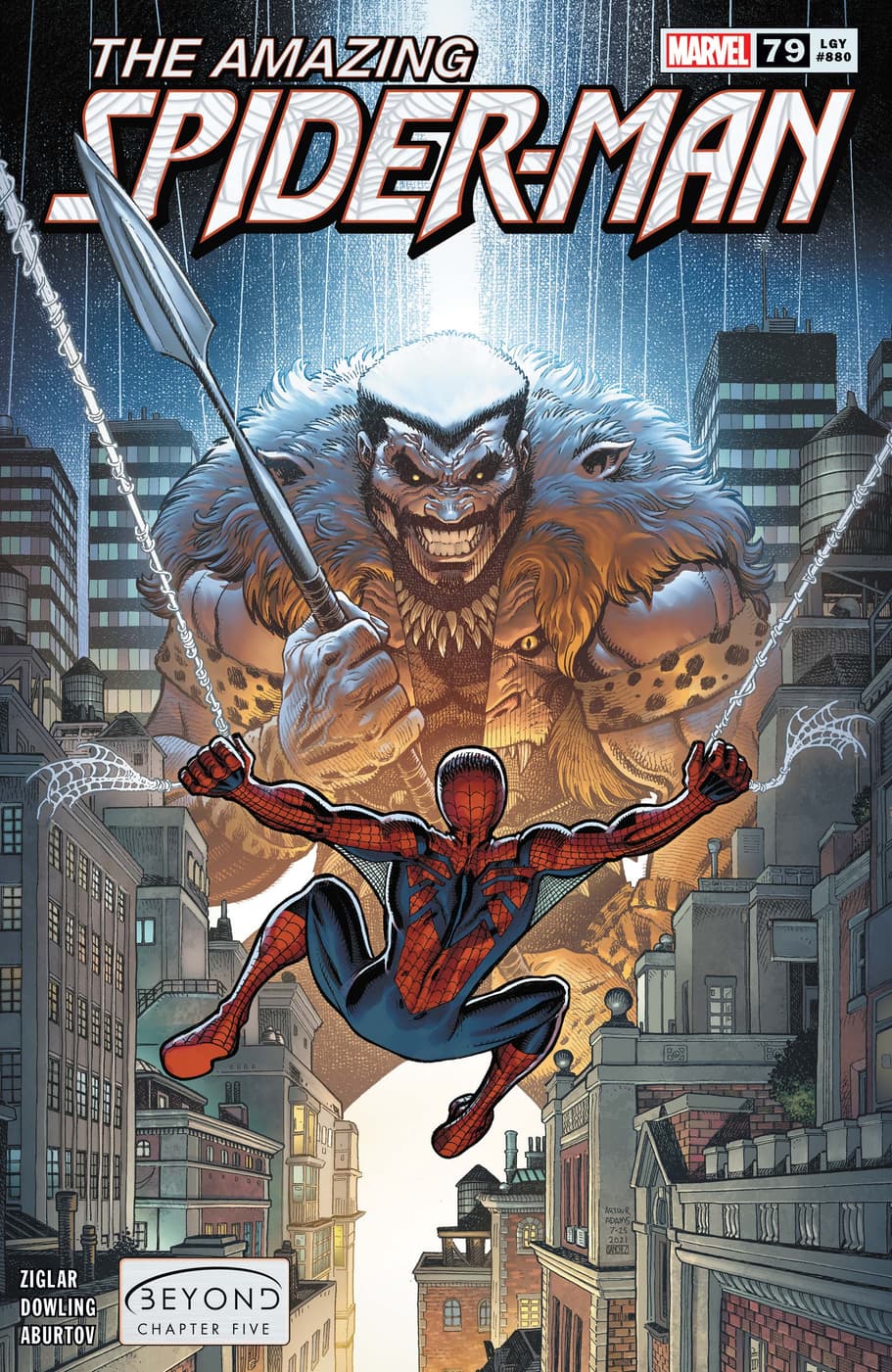
What’s it like being part of this Beyond Board group of writers on AMAZING SPIDER-MAN? How does it compare to being in a writers room for a TV show?
I came from TV so [the transition] was easier for me. Zeb has been walking in both those worlds for decades. It was easy for me as far as having a point in. With TV you break the overall story together because everybody needs to know where you’re going; you’re piling into this van and if you’re going to the Grand Canyon you want to make sure you’re actually going to the Grand Canyon. It was pretty natural.
Part of being in a writers room is finding out what your niche is and then finding out how everybody else fits into it. Zeb is a funny, funny guy; not only is he a funny writer, he’s incredibly funny in person. Me and Zeb had the comedy stuff covered [on She-Hulk]. He really gets a lot of heart out of characters you don’t necessarily see it coming from. I don’t think anybody picked up his book HELLIONS and expected it not only to be funny but to make you care about an egg-shaped grandma robot.
With Kelly [Thompson], her BLACK WIDOW series is defining the character in the same way that Matt Fraction did with HAWKEYE. The idea of taking a character and really making it your own while giving it a grounded weight—like she has her fighting the Serpent Society and it’s still grounded and real and fantastic. Saladin [Ahmed] has been writing Miles Morales for a few years and killing it. Pat [Gleason] is not only a fantastic writer, he’s an artist, so he’s thinking about things you wouldn’t think of as a writer. When I’m directing something and working with a DP or a cinematographer, that’s the kind of relationship I have with Pat. He’s great at both things.
TV rooms will go for 20 or 30 weeks sometimes. Comic books can’t do that. We met on two or three three-hour Zoom calls and broke the whole story. Kelly was like, “I really want to do Daughters of the Dragon, so I’ll take these two issues.” If we were going to have Ben meet Miles, obviously Saladin should be doing that because he’s the Miles guy. I was happy to do whatever. Then you’re basically off on your own. It’s not like a TV writers room where every single person is breaking out your issue or your episode step by step; you get a lot of freedom, which I really enjoy. They gave me Kraven, I wrote my story, then whenever I had questions or concerns or needed to bounce something off somebody, I just hopped on our Slack channel and asked Eisner-winner Kelly Thompson if what I was doing made any sense. I could ask Pat if this description of a double page spread worked. It’s the best of both worlds where you get the independence of writing stuff on your own, but if you ever get backed into a corner, you have other people you can run to and bounce ideas off of. For me, it was a perfect introduction into writing a big comic book series [like AMAZING SPIDER-MAN], a flagship title. I had the safety net of five other people who would back me up, five other people who were jumping out of the plane with me and at least one of our parachutes was gonna work.
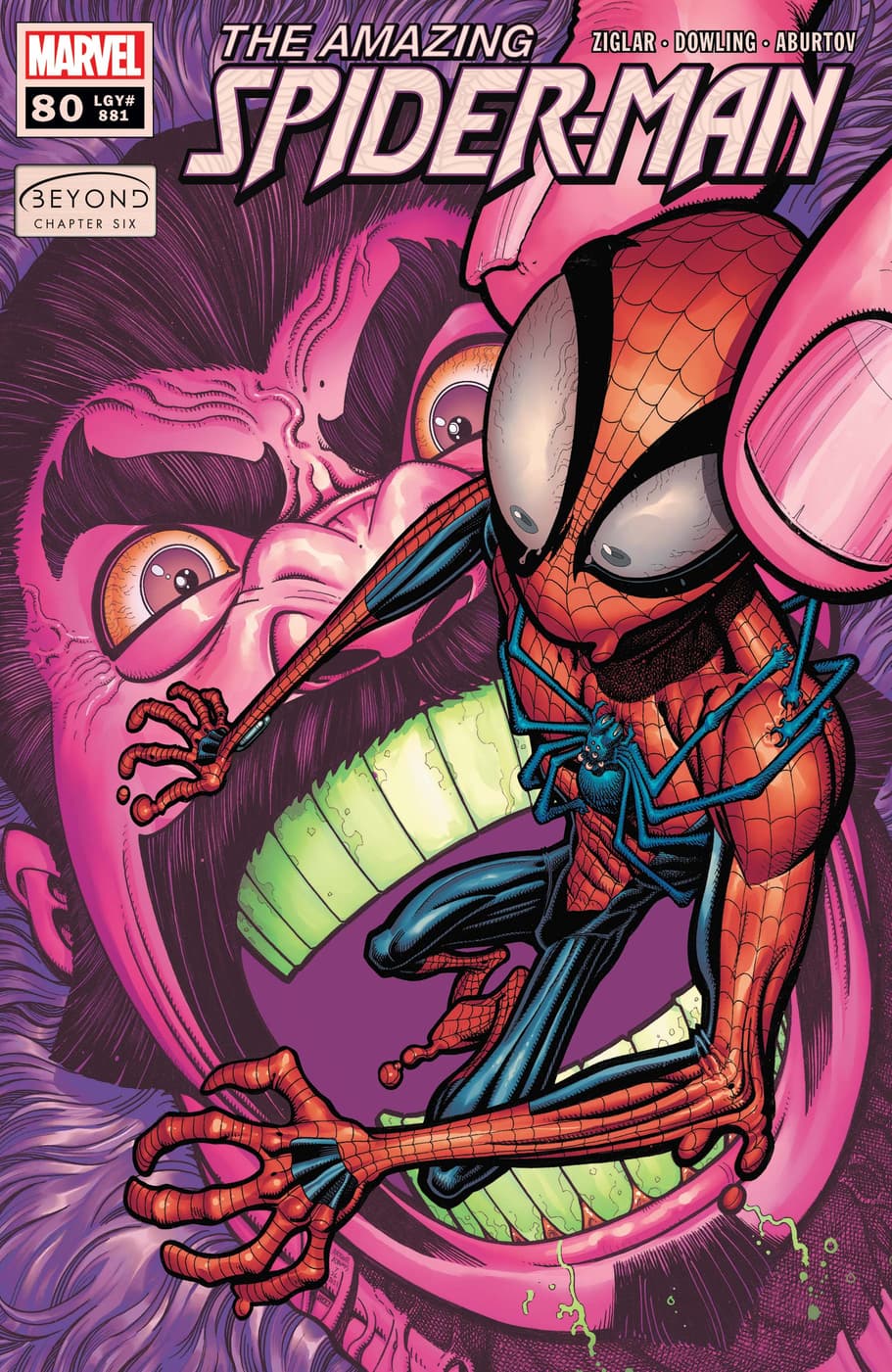
Ben Reilly is your Spider-Man for this story. How is he different from Peter or Miles? What kind of opportunities does he, as a character, offer you as a writer?
I think the coolest thing, the thing that really interests me is that he’s Peter, he’s a clone of Peter, but he’s had a much harder life, so he has a little bit of a chip on his shoulder. He’s a guy who doesn’t trust a lot of things, particularly himself. But there’s also an air of desperation that makes him want to believe, he wants to think things will work out. He’s working a little bit harder than Peter would because I think he has been dealt a worse hand. He’s died and been reborn at the hands of the Jackal a bunch of times—he’s been dealt a pretty rough hand. It’s been fun to write from that angle.
Also, he’s a guy who’s finally getting a win, he’s getting a W, he’s getting what he wants, to carve out his own legacy, to do good and be the friendly neighborhood Spider-Man he’s always wanted to prove himself to be. He has as much stability as a person can have in a world with guys named the Lizard and others who have octopus arms. That getting to prove himself aspect is what has drawn me the most to him. What’s his character journey? What’s the thing he has to battle through?
Were you handed the Kraven two-parter or was it your call to use that character as your bad guy?
The group had some villains they were interested in writing towards and asked me if I’d be interested in using Kraven. I thought that would be fun. There are way less interesting villains you could pick than Kraven. Kraven is a fun character, I knew he’d be fun to write, and I also knew I could do a story about things I think are important to discuss, like blindly trusting corporations, how blind capitalism might not be the best thing for the environment. But also, Kraven is an iconic villain, everyone knows Kraven. It’s fun getting to see Ben deal with Peter’s classic rogues. It’s fun seeing how Ben deals with this stuff as opposed to how Peter would. The echoes of Peter are in Ben’s DNA, but sometimes he turns right instead of left. It was fun getting Kraven out of the gate as my introduction to AMAZING SPIDER-MAN; he’s a fun, weird Russian guy who loves to hunt and hates Spider-Man, I 100% wanted to take this.
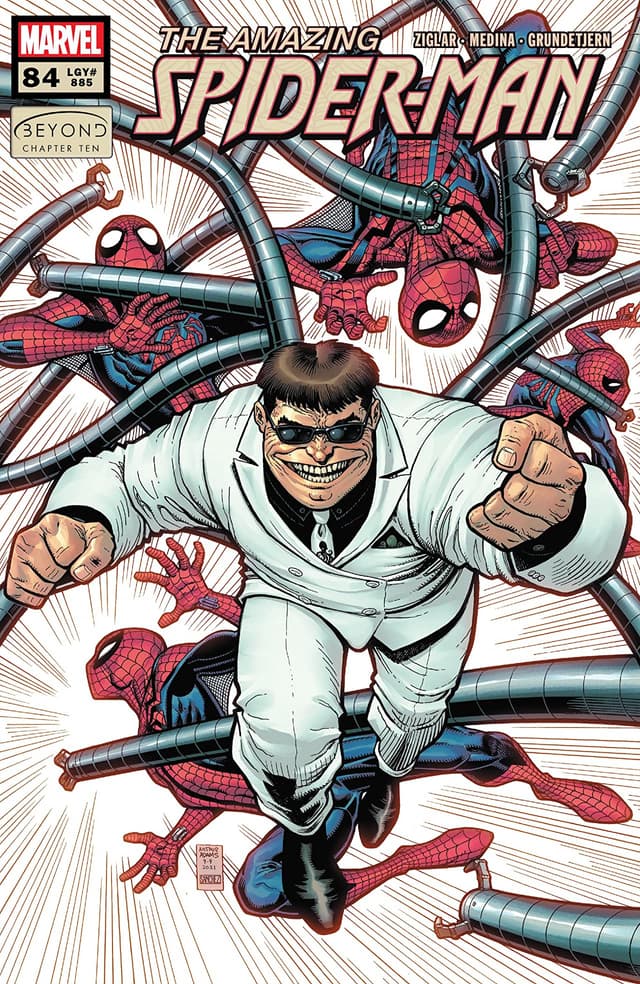
As somebody still relatively new to this, how do you balance the need to tell a self-contained story while also working on this larger epic you’re telling with several other people?
That to me was easy, because that’s what TV writing is. My She-Hulk episode is standalone, but it’s still also carrying throughlines to the next episode. I think it was smart of Zeb to get another TV writer for this, because that’s what the whole job is. You work on your episode or your issue, but then you have one or two lines setting up what comes next. This is where editors are really valuable because they’re keeping track of all the red strings going everywhere. The editors will remind me to put something in to set up Saladin, or Zeb will ask to see my pages so he can pay something off. I’ve always looked at our role as storytellers as the gunslinger who rolls in to save the town and then you move on to the next thing. That’s how I’ve always felt with both TV and comic books: you get in, you tell the story you want, then you leave the throughlines for the next person to pick up. It wasn’t too difficult for me because we had a fantastic team, but we also had awesome editors who were checking new scripts whenever they came in. It was fun, it was really cool to be working in that environment and not have to wait for two or three years for your thing to come out. You see the fruits of everyone’s labor six or seven months later as opposed to two or three years with TV.
Your issues were beautifully illustrated by Michael Dowling—how was that collaboration?
He’s great, he’s so fantastic. It was so cool because [editor] Nick [Lowe] said he wanted to cast [Michael] as my artist and then sent me some pages from a Black Widow story he had done, and it was two characters on a bench that looked fantastic, but then there was this skeleton in the sky looking down, and I was like, “Alright, I gotta give this guy some sort of crazy surreal images, because I know he’s going to crush it,” and he obviously did. A lot of that informed the tone of the story and where I took it because I knew this guy could do scale and surreal, I knew this was in Dowling’s bag and he could kill it. I leaned into the trippiness of it all because I knew he could really get into it and it would be a little off-kilter. Honestly, everyone on the art side killed it, doing the big surreal stuff, messing with the proportions, doing the melting hands, [colorist Jesus Aburtov] coming up with great colors for all the backgrounds, the lettering [from Joe Caramagna] being all out of scale so it looked like you were getting sucked into it, it was so cool across the board.
This was Michael’s first AMAZING SPIDER-MAN too, so it was exciting for both of us. Every couple days he would send me art and I wasn’t sure if he was sending it to the right person because it was too good, maybe it should be going to another writer with a little more prestige. It was fantastic, I couldn’t have asked for a better introduction to AMAZING SPIDER-MAN, he was so cool to work with, such a talented guy.
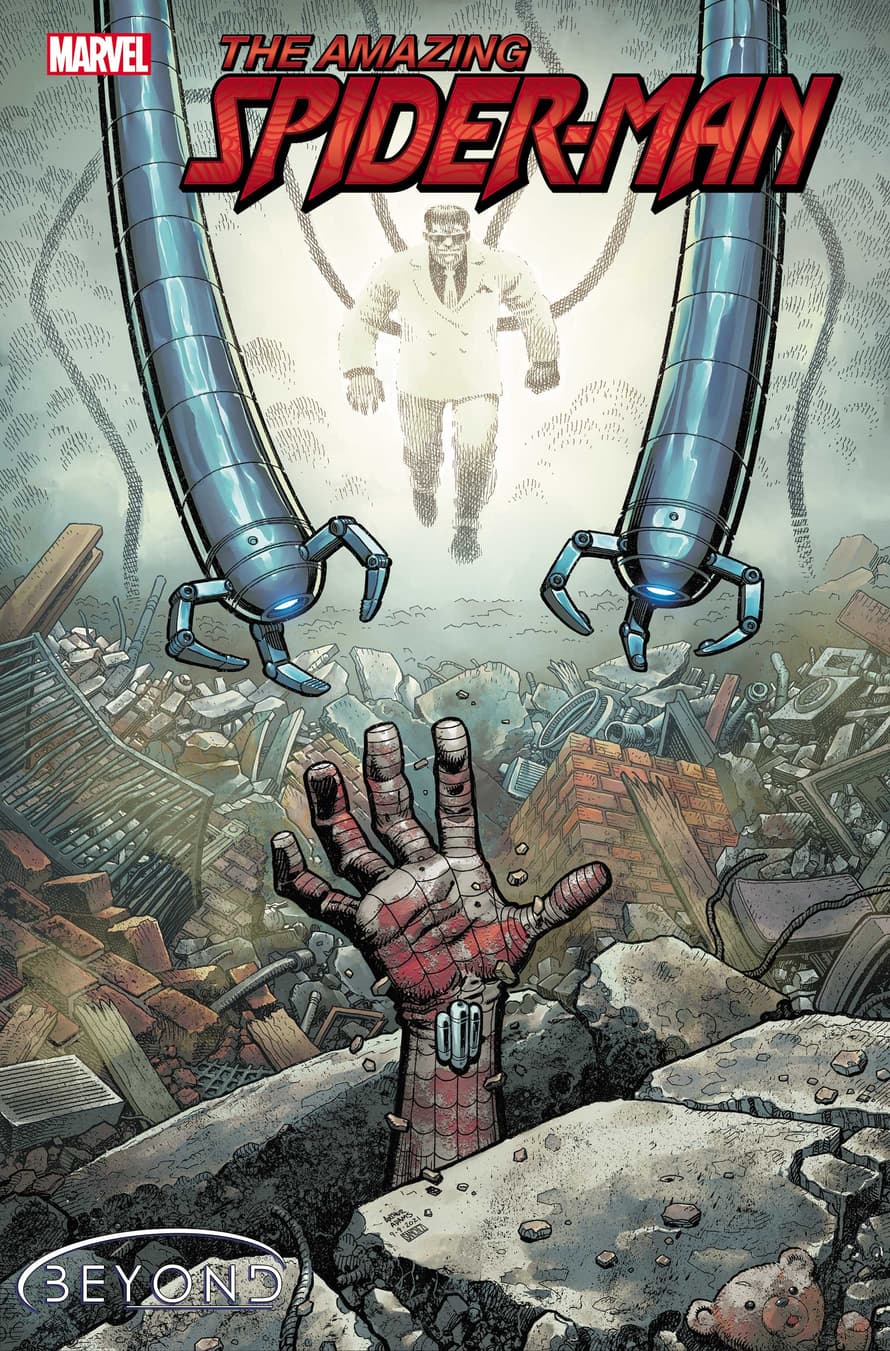
When will we see you again on the book and what do you have planned?
I’m doing AMAZING SPIDER-MAN #84 and #85, with Doc Ock. Doctor Octopus will be in play. Paco Medina is doing the art, and he drew my first published story plus we’ve worked together on a couple projects, and he’s a fun, cool, sweet dude who always ends every email with, “I love you, buddy!” I’m so happy we get to work on AMAZING SPIDER-MAN together because he genuinely makes me so happy. He’s such a phenomenal artist and I also love that I get to work with another person of color, that’s such a fulfilling part of the process.
What have you learned in this sort of maiden voyage as a comic book writer? What do you know now that you didn’t know a year ago?
Oh man, good question. I knew it would be a collaborative effort, but I didn’t know it would be so collaborative and fulfilling. I came from TV where you don’t see the endgame for years sometimes. I was used to writing 35 page scripts because Rick and Morty have to go to a banana planet, and there are people talking very fast. What I’ve been trying with comics is letting the art do as much of the storytelling [as the writing] because you’re working with phenomenal artists who are also visual storytellers. If you look at my first comics there is so much dialogue. I’ve been paring it down since and trying to figure out the most powerful and concise way to get a sentence out. There’s also the working process and how every person from one end to the other is just a big fan of what they’re doing. They love the job that they have and they love the things that they get to make, no matter how much blood, sweat and tears goes into putting this out every single month, or every single week for AMAZING SPIDER-MAN. Truly how much everybody loves what they’re doing and how it makes the process feel less like work. I couldn’t have asked for a better introduction into a new art form and new way of telling stories, it’s been fantastic, dude.
Pick up AMAZING SPIDER-MAN #84 and #85 at your local comic shop now, and follow the adventures of Cody Ziglar and the rest of the Beyond Board weekly with AMAZING SPIDER-MAN!
The Daily Bugle
Can’t-miss news and updates from across the Marvel Universe!
